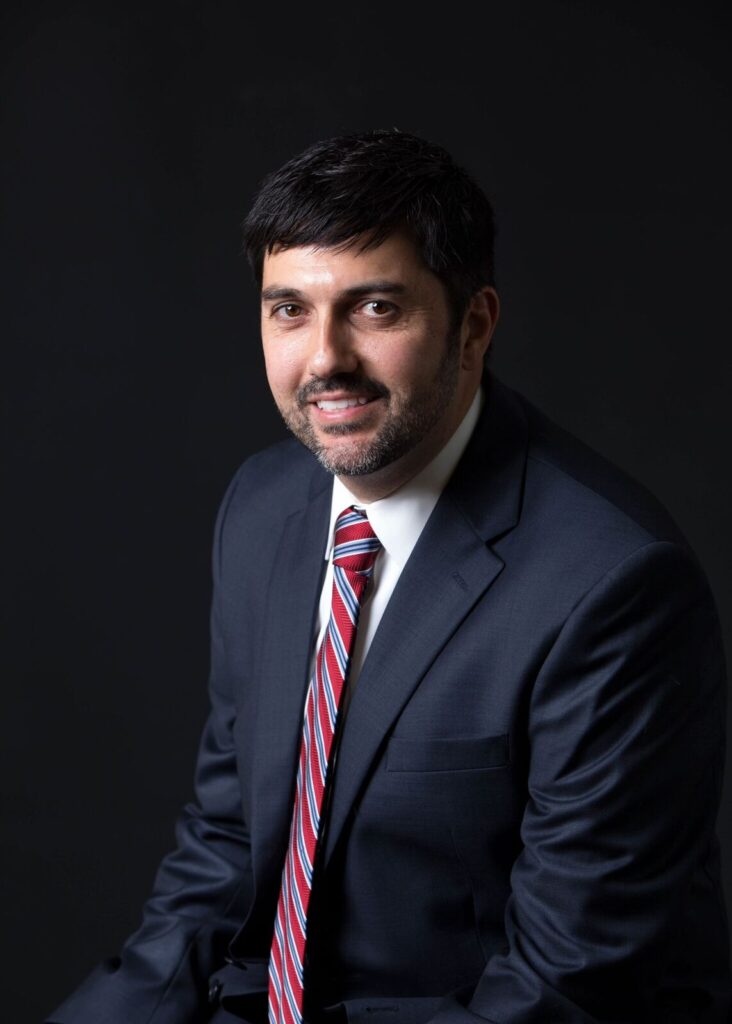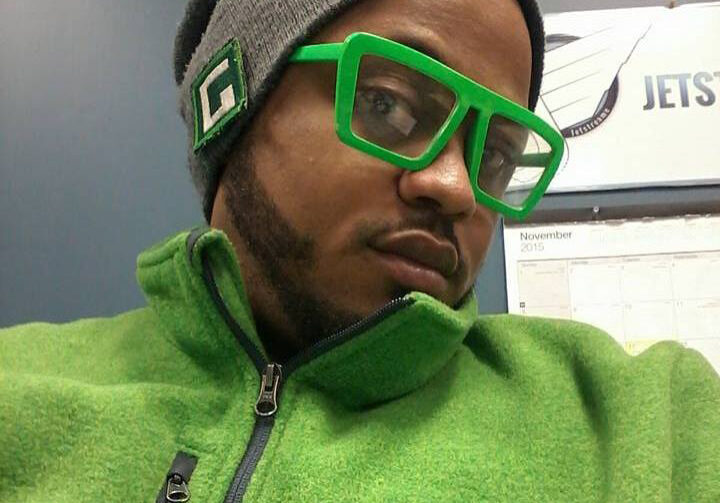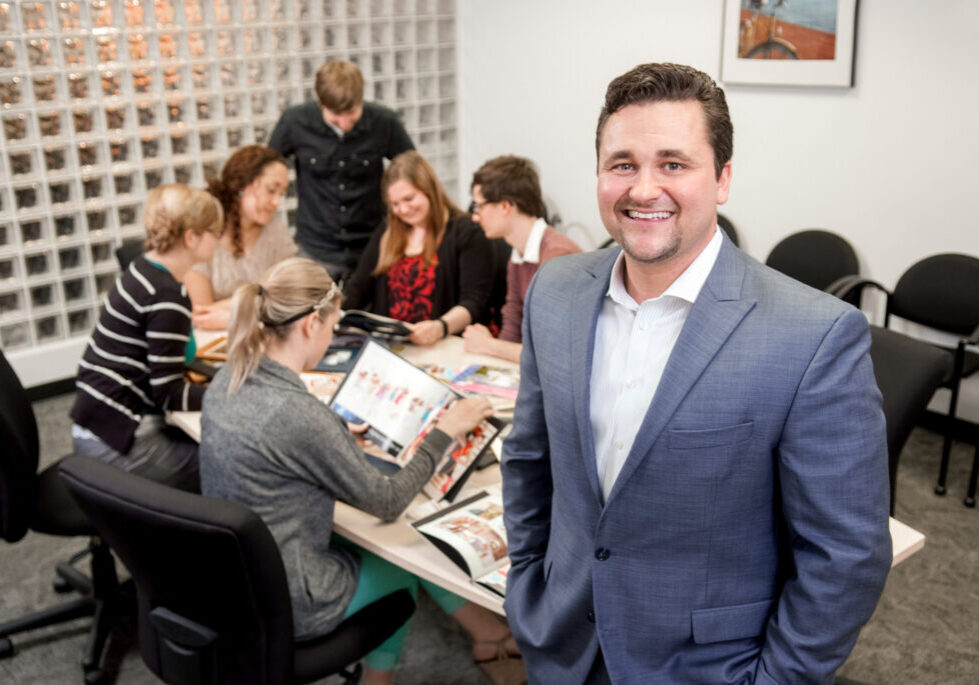Sixteen years ago Devin Zito saw an opportunity to solve that problem. “While working at nonprofit and corporate IT for several years, I realized that small to medium business needs IT as much as a large business — sometimes even more so,” he says. To help fill that need, he launched Teknarus. The company helps in two ways: It develops custom software to help small and medium-sized businesses be more efficient through automation, and it provides IT and help-desk support for companies that maybe aren’t big enough to have those operations on their own.
Those efforts have paid off, and for the second year in a row, the firm made the Tiger 100, an annual list of the fastest-growing businesses around the world that are owned or run by LSU alumni.
We recently spoke with Devin to learn more about the drivers behind that growth.
Building Trust and Building a Client Base
In the early years the custom software side drove the business. “We were small and couldn’t sustain the help-desk side of the business,” Devin says. “That line is much more reactive, and you have to drop everything when something comes up, so at first our focus was on the custom software side.”
Like all small businesses, Teknarus faced cash-flow challenges in those early days, so Devin focused on building relationships and earning trust with larger companies. “We were dealing with large customers who love the agility of working with a small company but may hold stereotypes about a small company being able to do as much as a large one,” Devin says.
That approach helped the company garner some larger clients that fueled growth, and building relationships with customers is still a key value. Creative Director Amy Phillips, who joined the company in 2010, works on building relationships by taking a different approach to design. “One of the ways we approach projects is we want to be creative but also want to think practically, especially when talking about an application or website design,” she says. “We want it to be visually appealing, but if it doesn’t function or flow, it doesn’t matter what the design is.”
The work Teknarus does can help companies build relationships inside their own organizations as well. Automation is sometimes seen as a job-killer, Devin says, but it’s more about streamlining processes so people who were doing things manually can focus on more strategic functions in their jobs. That’s also the role the company tries to play on the help-desk side: allowing smaller companies to keep their critical systems up and running so they can focus on serving their customers, Devin says.
Embracing Remote Work Retains Key Talent
One of the factors that sets Teknarus apart among its local competition is that some of its employees work remotely full time. The company didn’t set out to work on a remote model, Devin says: “It wasn’t like I had this foresight that it would be this fantastic thing.” Teknarus had an employee who was going to move, but Devin didn’t want to lose him so they worked out a remote-work arrangement.
Then the company’s most senior developer — who had said when he was hired that he probably wouldn’t stay on more than three or four years — decided it was time to move on. “I approached it thinking that this would be hard to replace our most senior developer,” Devin says. “It pained me so much and I knew we had to figure something out.” They talked about it, and were willing to try a 90-day remote-work trial. “It’s now going on several years,” Devin says, and the company formalized its remote-work policy for everyone. That approach means the company is able to maintain relationships with key staffers who have helped Teknarus grow.
Remote work is something almost any organization can tap into to help deal with a talent shortage, Devin says: If your employees can work anywhere, you can look anywhere to find them. Companies that face a talent crunch — such as those in technology — can especially benefit from remote options.“It’s helped us weather some of the employment storm in Baton Rouge,” Devin says. “We’ve got a shortage of certain types of tech people. This allows us to explore the options.”
Tech Park Partnership Fosters Even More Connections
In 2004 Teknarus had a small office space in Baton Rouge. It then moved to Denham Springs, but that led to a lot of travel time back and forth to serve clients in Baton Rouge. He said he looked downtown for a new space before someone asked if he had thought of Louisiana Technology Park as a headquarters.
In its early days Teknarus had worked with a Tech Park tenant, so Devin was familiar with the campus and the community. “I met the people running the Tech Park, so I’ve had a working knowledge of what it could do as long as it’s been here,” he says. “I thought I knew everything about it, but since we weren’t a startup or in need of an incubator, I didn’t know if we were a good fit.”
But Executive Director Stephen Loy told him the park was interested in growing technology companies no matter where they were on the growth chart, following a philosophy of scale-ups vs. start-ups. He said they were also looking for anchor tenants who were a little more mature and could help in advisory roles. “I was absolutely interested,” Devin says. “We moved in fall of 2012, and it’s been a fantastic place to be.”
Being a Tech Park member means the company can offer tech-firm perks without having to invest in them themselves. “There are things here that would be incredibly difficult to provide — a gym, conference spaces, a room where we can host a 50-person meeting,” Devin says. “All those things you’d have to pay for yourself are available to us every day.”
Amy says working in close contact with other growing companies provides great energy for everyone. “There are lots of conversations between companies about what’s popping up, and just being in this culture and environment helps us stay on top of it,” she says.
Teknarus continues to grow. For example, it acquired InfiniEDGE Software this year. In the meantime, Devin says he’s dedicated to keeping up Teknarus’ reputation of providing service at “extreme value.” “It’s always been important for me and our company. We’re not the most expensive out there, we’re not the cheapest out there — we’re at the middle and we give a fantastic product for what we charge.”




